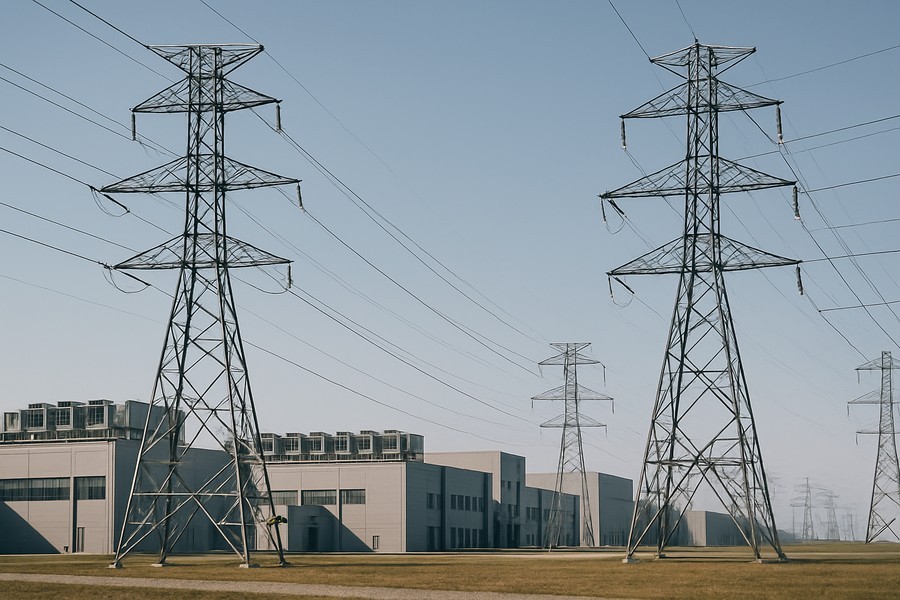
Addressing the Energy Challenges Posed by High-Demand Data Centers
As the demand for electricity continues to surge, due to the rapid expansion of high-energy consuming data centers, lawmakers are considering a drastic approach. This involves temporarily disconnecting these data centers from the power grid during periods of energy crisis.
Initially trialed in a state known for its concentration of data centers, this concept aims to prevent catastrophic blackouts that have previously resulted in loss of life. This approach is now being considered in a 13-state region in the mid-Atlantic and other areas where data centers are being established faster than power plants can be constructed and incorporated into the grid system. This has led to resistance from data centers and big tech companies who rely heavily on a consistent power supply.
Texas Paves the Way
Leading the charge, Texas is actively inviting data centers to set up within its borders, seeing it as an economic opportunity. However, the state is grappling with balancing the enormous electrical demands of these centers. Officials have introduced legislation that outlines standards to be implemented during power emergencies, which may necessitate disconnecting large electricity consumers from the grid.
It is believed that such a move could conserve sufficient electricity to prevent widespread blackouts during the extreme temperature periods of the year when energy consumption pushes the grid to its capacity and beyond. Experts predict that Texas will not be the only state to adopt such measures, particularly given the recent increase in global demand for chatbots and other AI products that require substantial computing power.
The Rising Threat to Grids
The rapid increase in data center projects, not only in Texas but approximately 20 other states, is putting a strain on grids. This is part of an ongoing international competition for AI superiority, primarily against China. Grid operators in various regions, including Texas, the Great Plains, and the mid-Atlantic have predicted a significant spike in electricity demand in the coming years, largely due to the proliferation of data centers.
New proposals have emerged, suggesting limiting the electricity supplied to data centers during power emergencies. Such proposals have arisen at a time of rapidly increasing electricity bills, sparking concerns that everyday consumers are effectively subsidizing the immense energy needs of Big Tech.
Adapting Data Centers
Big tech companies are making efforts to increase the energy efficiency of their data centers, including the installation of backup generators to ensure continuous power supply in the event of outages. However, the prospect of relying on backup power to assist grid operators in meeting demand was not anticipated by data center operators.
Representatives of these companies and data center developers are advocating for flexible standards, as the ability to switch to backup power varies amongst different data centers. They also suggest that data centers that voluntarily shut down during emergencies should be financially compensated.
A Voluntary Approach
In a different approach, a tech giant agreed to voluntarily reduce its electricity usage at a proposed data center during periods of grid stress. This involves delaying non-urgent tasks until the grid is under less strain. However, critics argue that the lack of transparency in the agreement leaves its true value uncertain.
Reevaluating Electricity Usage
The notion of disconnecting large users from the grid during periods of high demand represents a novel approach to electricity management. This could result in cost savings for regular ratepayers, as power is most costly during peak usage periods.
While data centers consume vast amounts of electricity, disconnecting them from the grid during the most extreme weather conditions could prevent the need for expensive construction of additional power plants. Experts question whether the societal cost of building new power plants to service data centers during peak periods is justifiable or whether a more efficient approach can be found.
